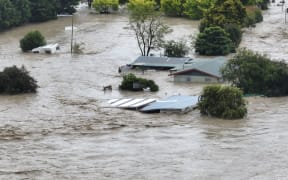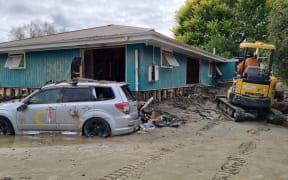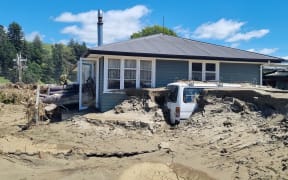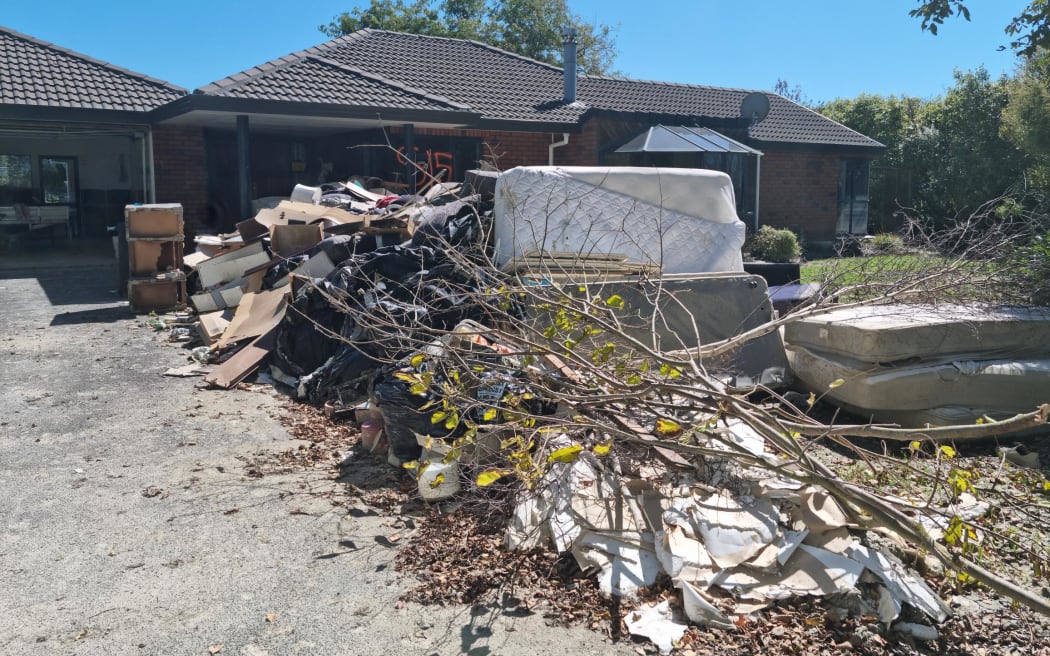
Destroyed household items In Awatoto, Napier, after cyclone Gabrielle swept through the region. Photo: RNZ / Niva Chittock
Hawke's Bay mayors are defending the Civil Defence response to Cyclone Gabrielle but agree emergency management systems need to be overhauled.
A highly critical report into Hawke's Bay's Civil Defence response to Cyclone Gabrielle found it was not ready for the disaster.
Hastings mayor Sandra Hazelhurst defended Civil Defence staff on Tuesday and told Morning Report she was not appalled by the findings.

Hastings mayor Sandra Hazelhurst. Photo: Hastings District Council
"Everybody worked their heart out and did their best. We have 12 people sitting in a CDEM office and everyone was overwhelmed. We didn't have the capability and capacity to be able to get across such an enormous event, which was the scale and speed of the cyclone.
"It was overwhelming for so many."
The report highlighted the lack of systems and processes across all agencies.
Hazelhurst said the emergency management systems for New Zealand needed to be changed.
There was a need to improve telemetry, the warning systems, and coordination between FENZ and police she said.
"We just totally underestimated the absolute scale and the speed and severity of ... when the cyclone struck."
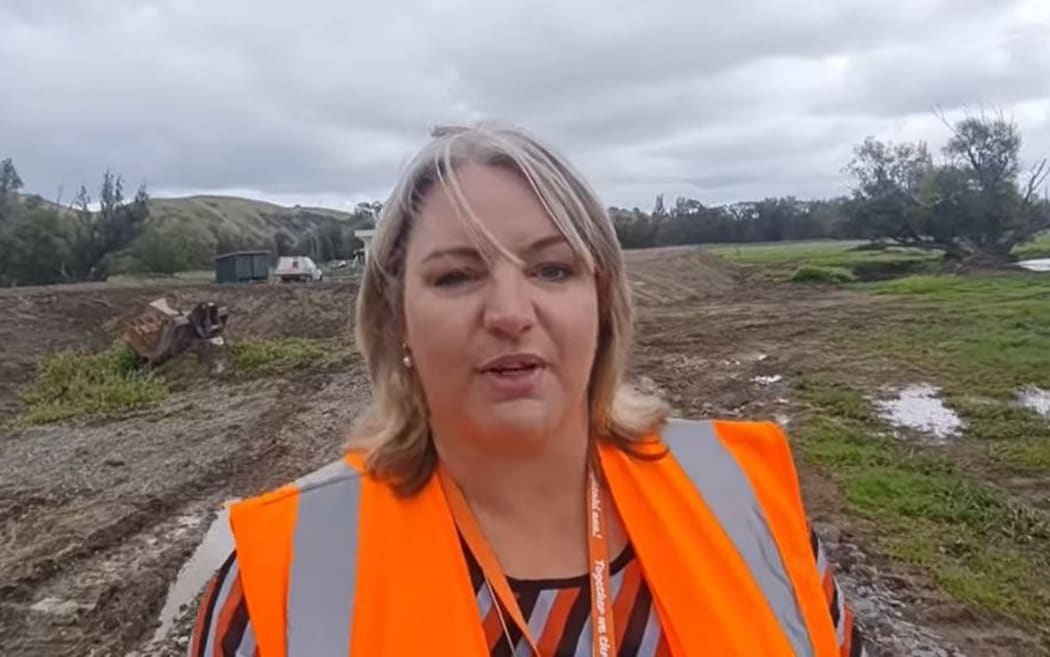
Central Hawke's Bay mayor Alex Walker. Photo: Screenshot / Central Hawke's Bay District Council
Central Hawke's Bay mayor Alex Walker also defended the response teams, but told Morning Report the review painted a confronting picture
"A lot of people made decisions to the best of their ability at the time and in the context of the information we had at the time."
The review found the intent of those involved was positive, but they did not have "situational awareness", which meant they did not plan for the worst-case scenario.
"One of the things that strikes me about that 'situational awareness' at the time that the report talks about is that it's so reliant on other pieces of information," Walker said.
"It was reliant on the weather reports, on the intelligence coming through from 111 and police and fire emergency networks and the scale of it.
"Even at that stage, when we were getting that advice ... even we couldn't see, it was too big at that time."
Walker said it was time to bring the systems together.
Some Hawke's Bay residents are calling for an apology from the civil defence leaders.
Walker said the teams were at the beginning of regaining the public's trust.
"We all need to get our trust and confidence back into the system.
Implementing learnings
The review panel interviewed a range of individuals and organisations, bolstered by a public survey which attracted more than 1000 responses.
It was headed by former police commissioner Mike Bush, who told Morning Report it was not about apportioning blame but he warned officials "may fall short again" if they did not implement the learnings.
"Their real focus is to ensure that whenever there is another crisis, and there always will be that, they take the learnings from our report and implement them to ensure that the community, who deserve the very best response, get that response."
He put it down to overconfidence by the teams, who had previously done a good job during the Napier floods.
"They had responded well to previous emergencies in the Hawke's Bay area before that doesn't mean that you can take a more relaxed approach to looming crisis," Bush said.
"In this case what we got was a worst-case scenario, worse than the weather reports had predicted, but that's not an excuse not to prepare for such eventualities."
